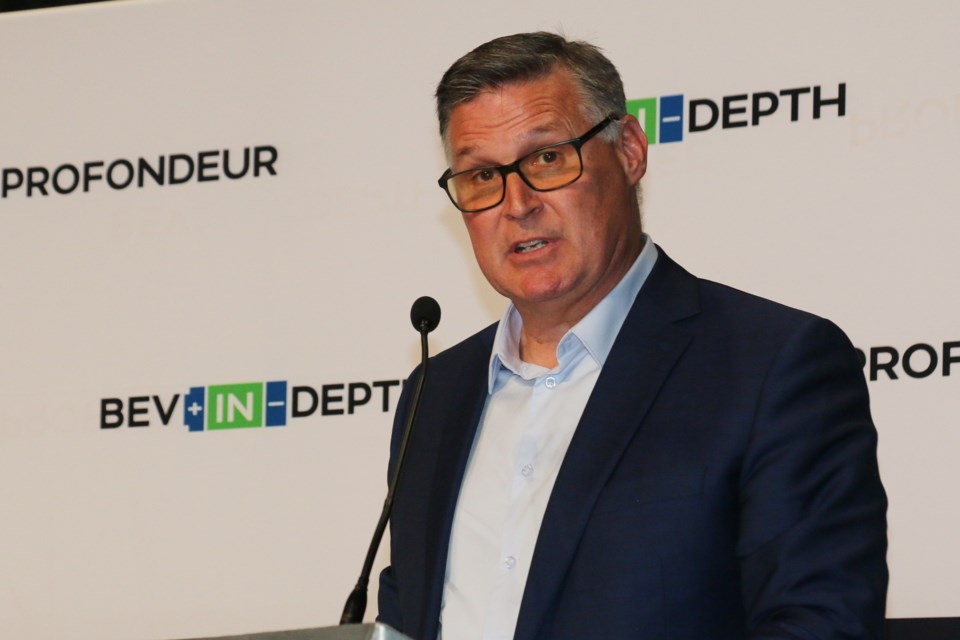The man who heads up Honda in Canada said there are serious business reasons why his company continues to invest in the future of Honda battery electric operations in Canada and in Ontario specifically.
Jean Marc Leclerc, the president and CEO at Honda Canada, was a keynote speaker at the BEV In-Depth Mines to Mobility Conference at Cambrian College in Sudbury on May 29-30.
Leclerc spoke about the fact his company is part of the largest ever automotive industry investment ever made in Canada.
In April, the company announced it was spending $15 billion for the creation of four electric vehicle and battery plants in Ontario.
Leclerc said since Honda made the announcement just over a month ago he has been swamped with four questions that have outpaced all others: Why did Honda opt for a full EV value chain approach? Why are the plants in Canada? Why are plants in Ontario? And, why even proceed with EVs when everyone claims the market is too soft?
"Well, the answer to all these questions is really about the relationship between environmental responsibility, efficiency and affordability," said Leclerc.
He said Honda has strong environmental values and is dedicated to carbon neutrality. By having plants that can produce every aspect of a new electric vehicle with a central focus on batteries, Honda can produce uniquely environmentally attractive and technically innovative vehicles.
With respect to building in Canada, Leclerc said while Canadians don't always see the country as a key player on the global stage, the reverse is true.
"Canada is, in fact, strongly positioned to play a leading role in the electrification transition. Considering the supply chain ecosystem that exists in this country, we are rich in natural resources…. The use of clean energy is actively promoted here. We have a highly skilled and diverse workforce, we have proximity and access to the largest global market. And we have governments actively engaged in selling Canada around the world as a prime destination for the electrification transition, and also governments that have environmental objectives that are aligned with ours," said Leclerc.
Closer to home in Ontario, Leclerc added that the plants will be close to the suppliers. He said being close to battery material suppliers and other materials is important to minimize costs.
With respect to the question about a declining market for EVs Leclerc said, "Well, the simple answer to that question is that EVs are the future," he said.
"This investment is not about addressing demand today, but rather where we see demand evolving in 2028 and beyond. After the first EVs roll off the line in Alliston there's no questions in our mind that electrification is the most effective solution for life mobility products. We believe that by the end of the decade, the trend line of EV adoption will increase significantly," said Lerclerc.
Len Gillis covers mining and health care for Sudbury.com.




